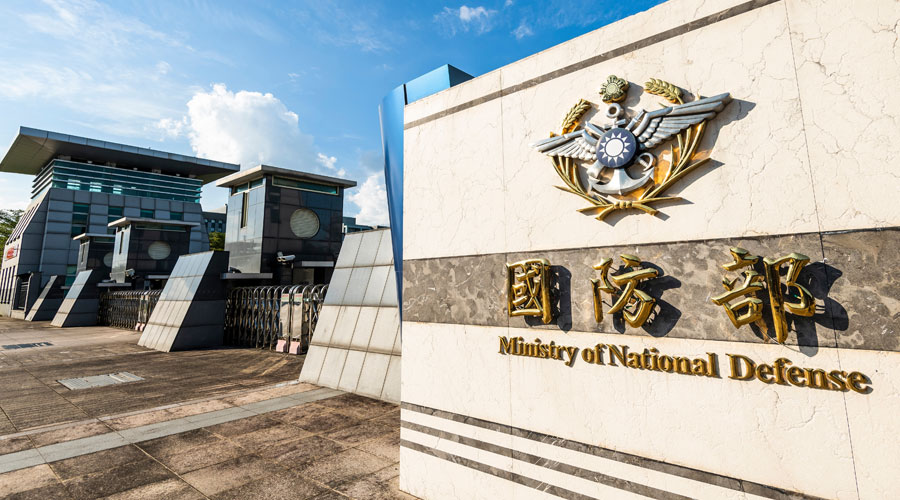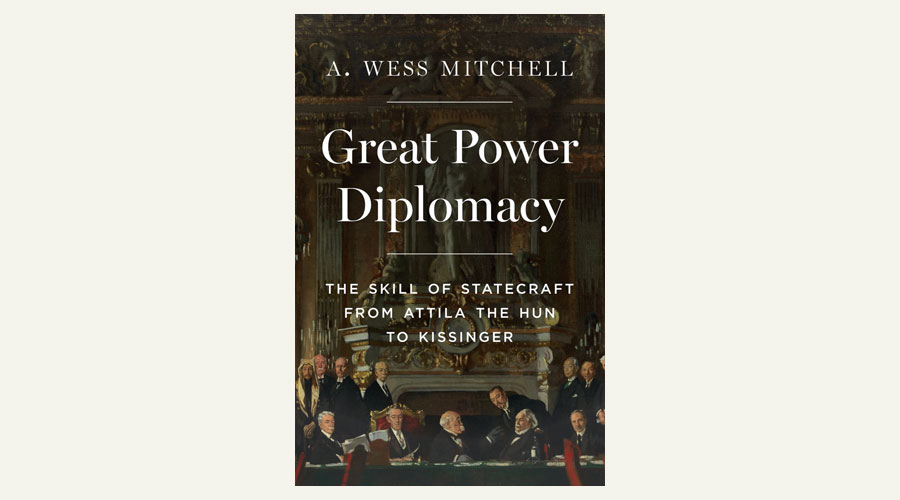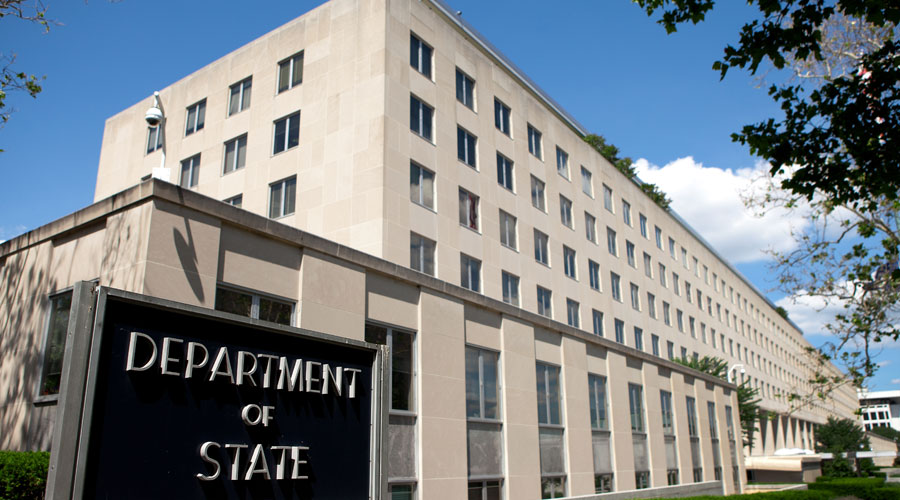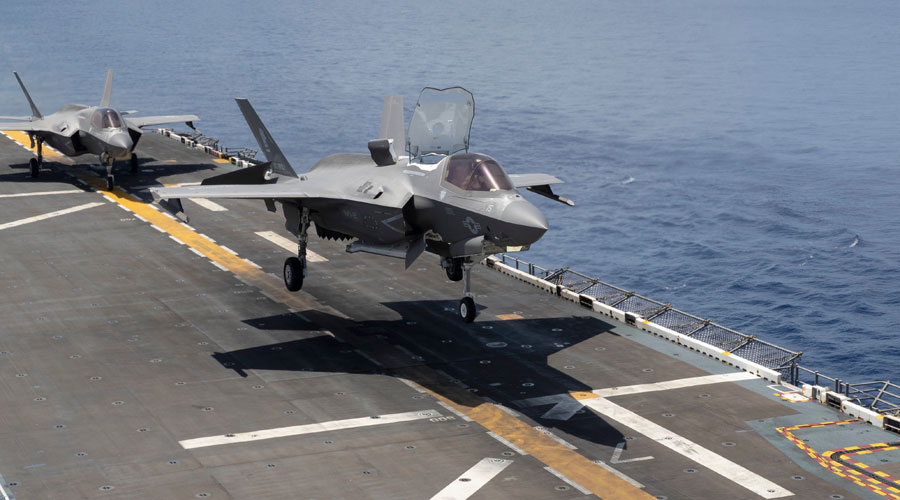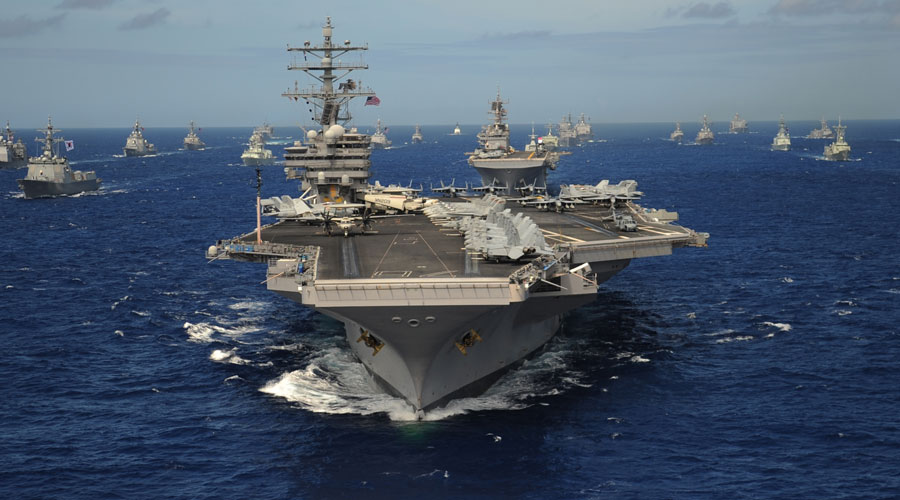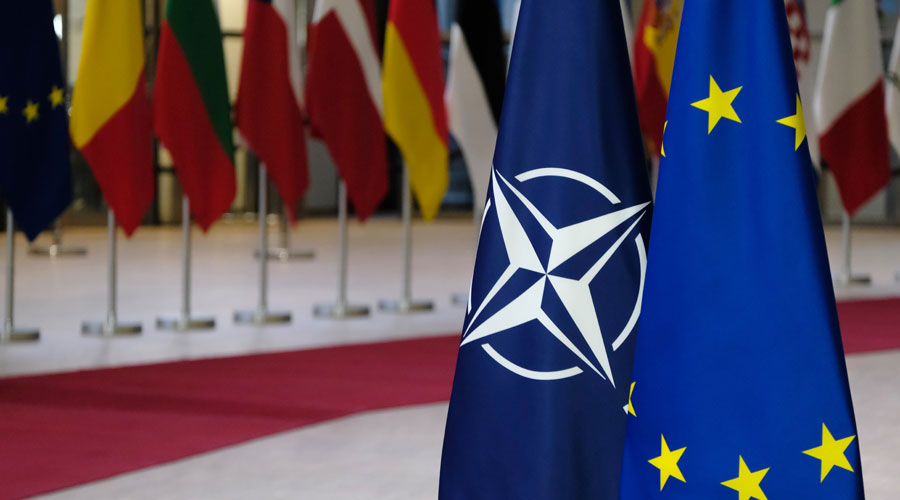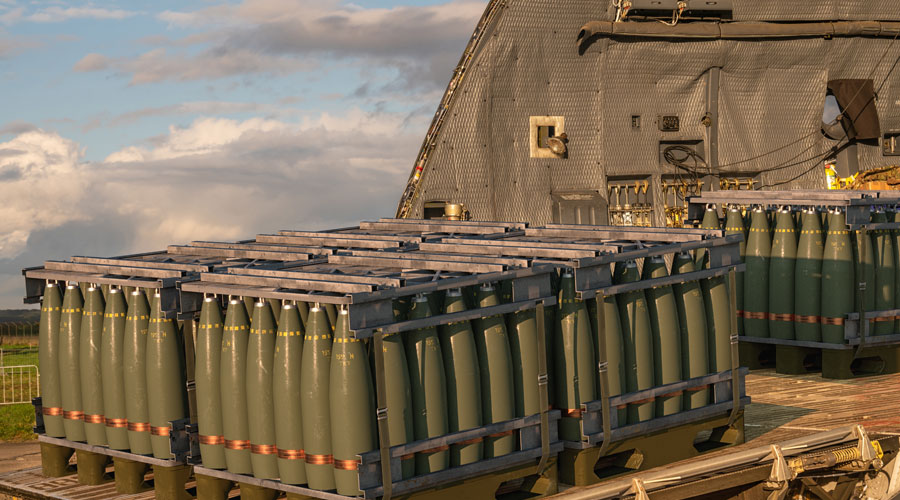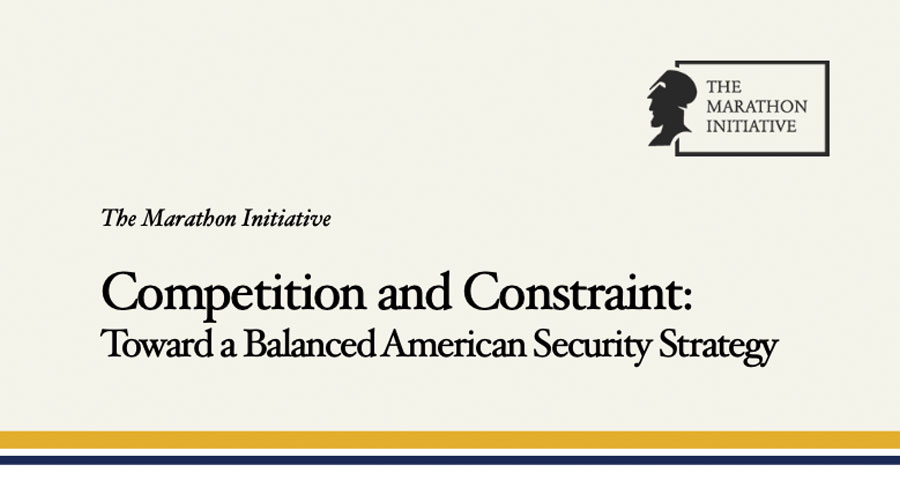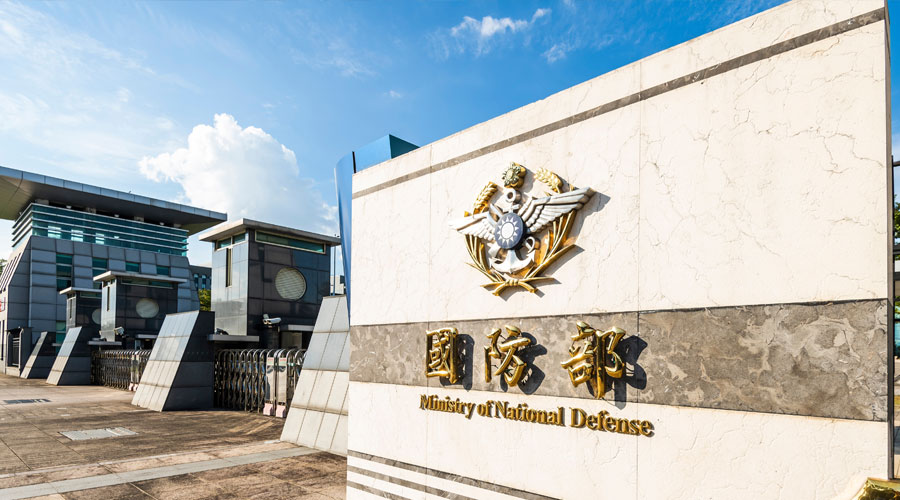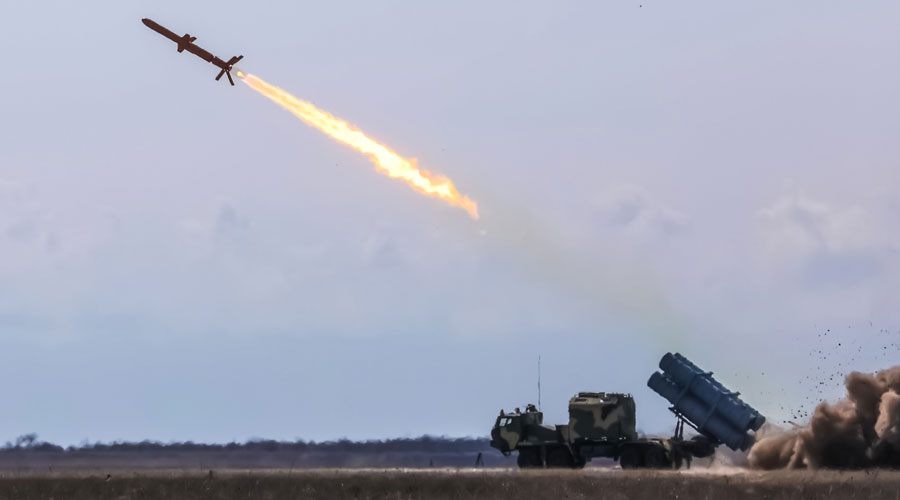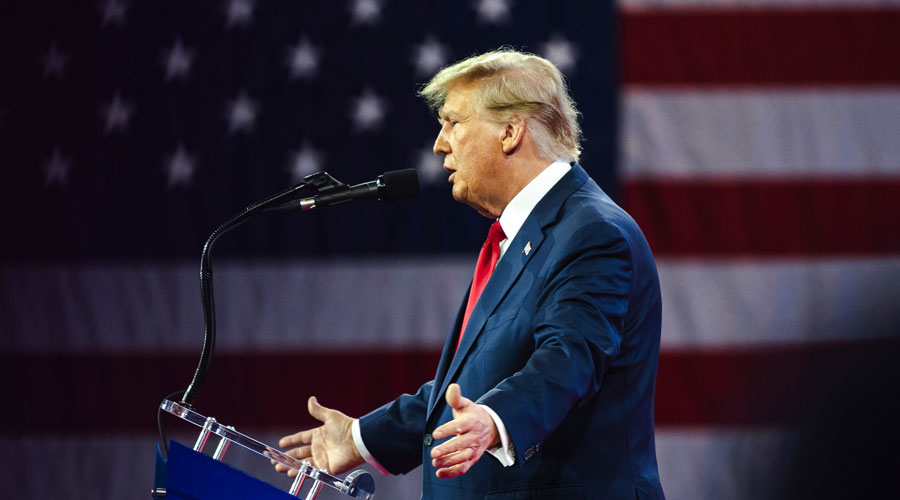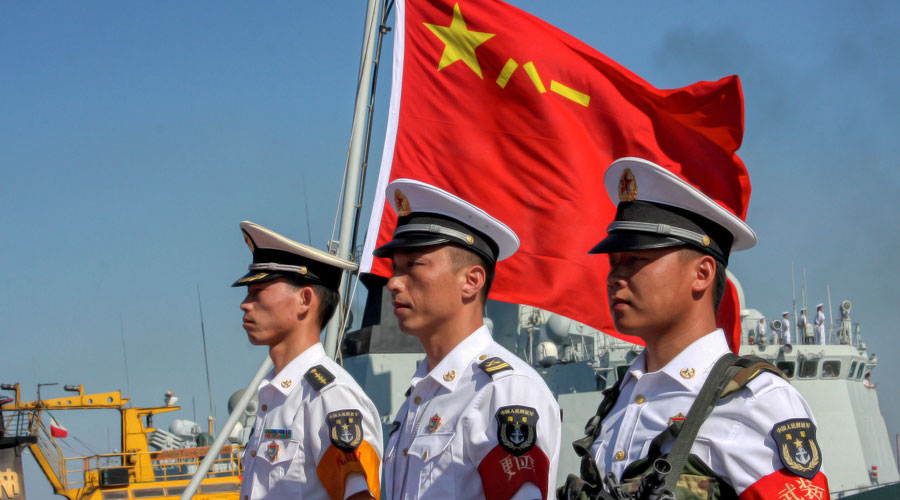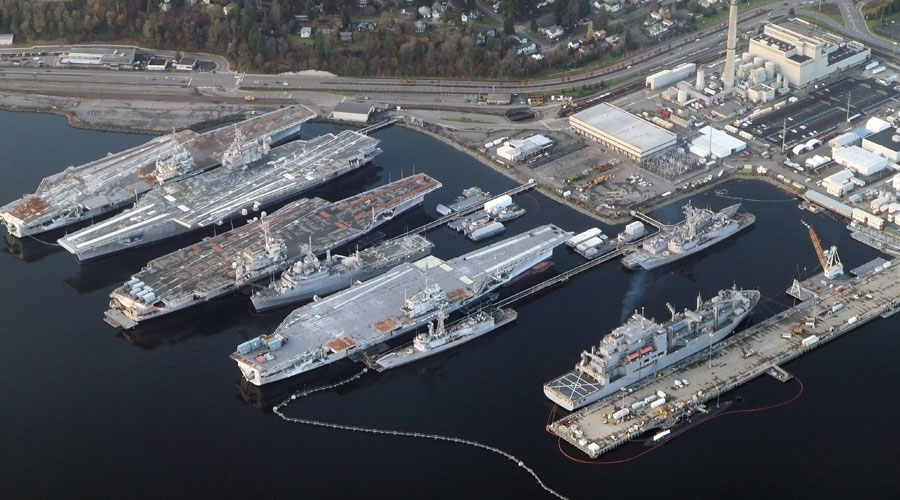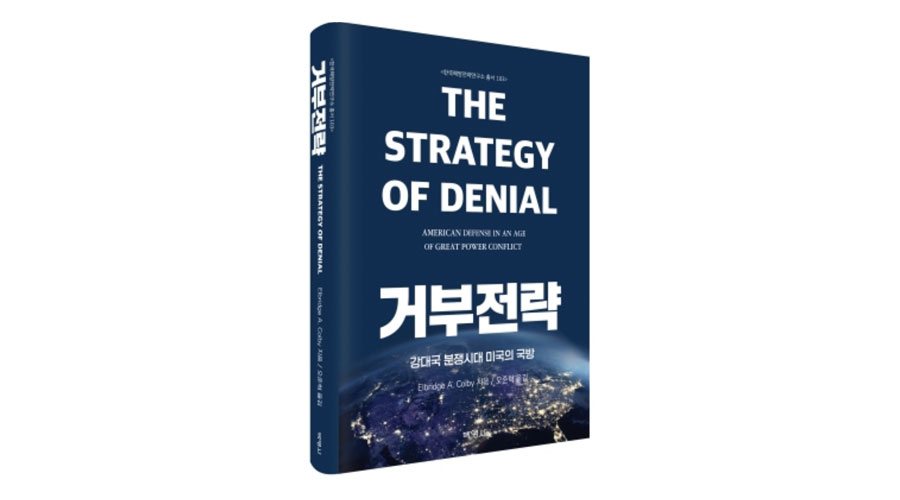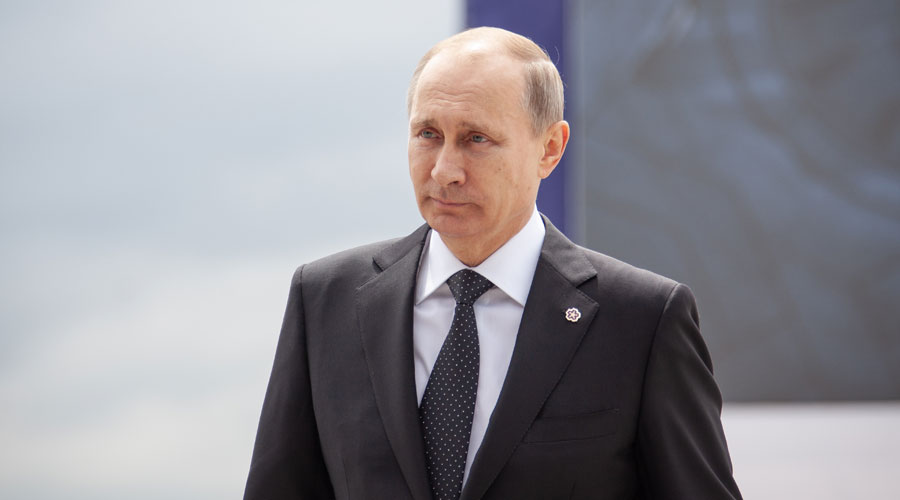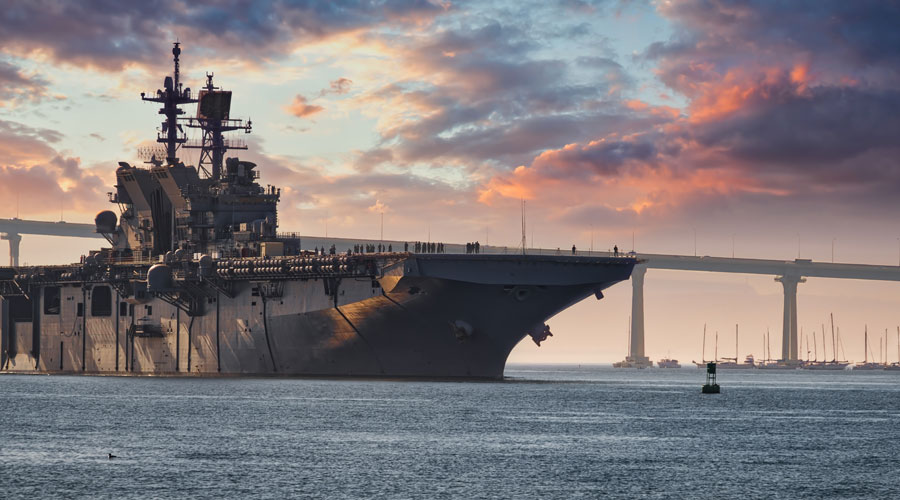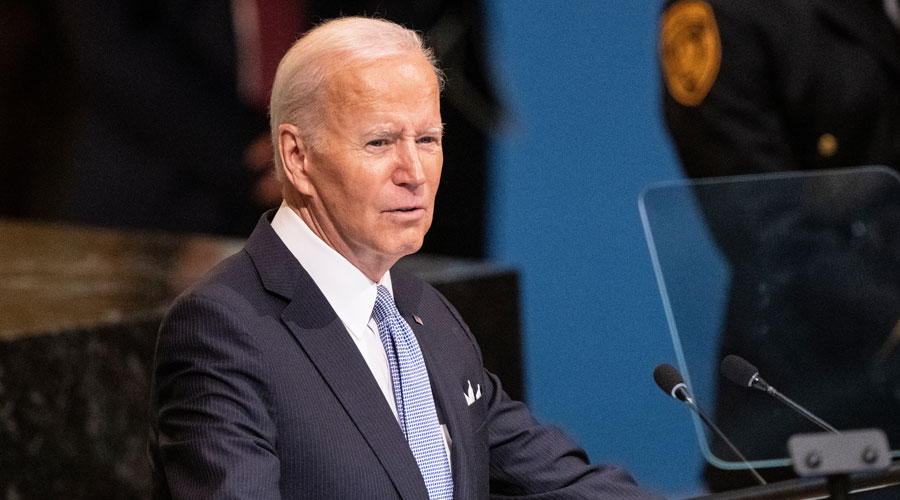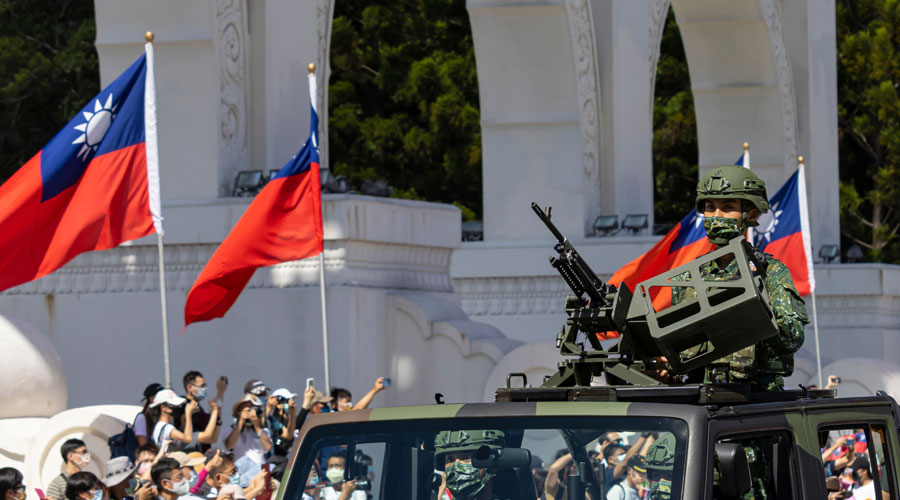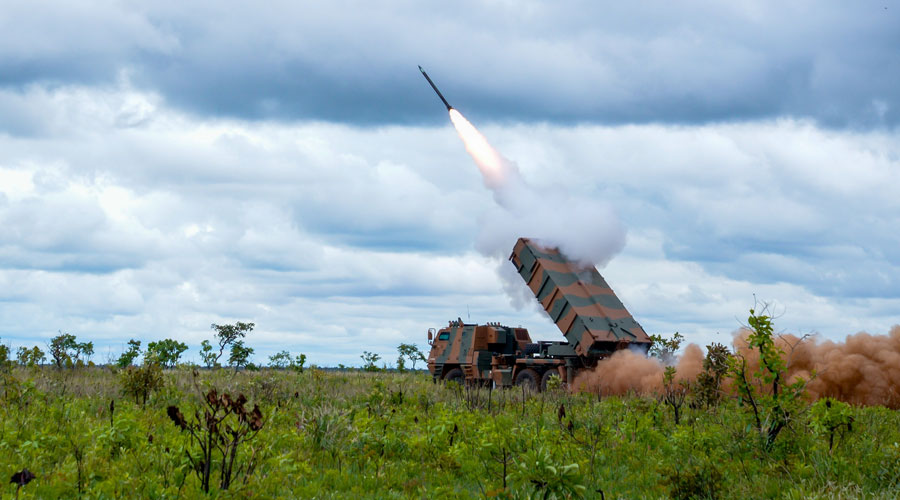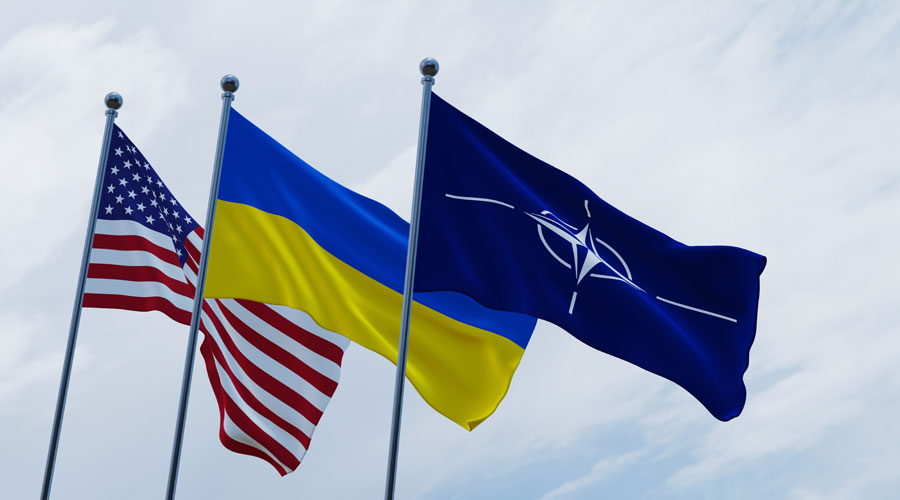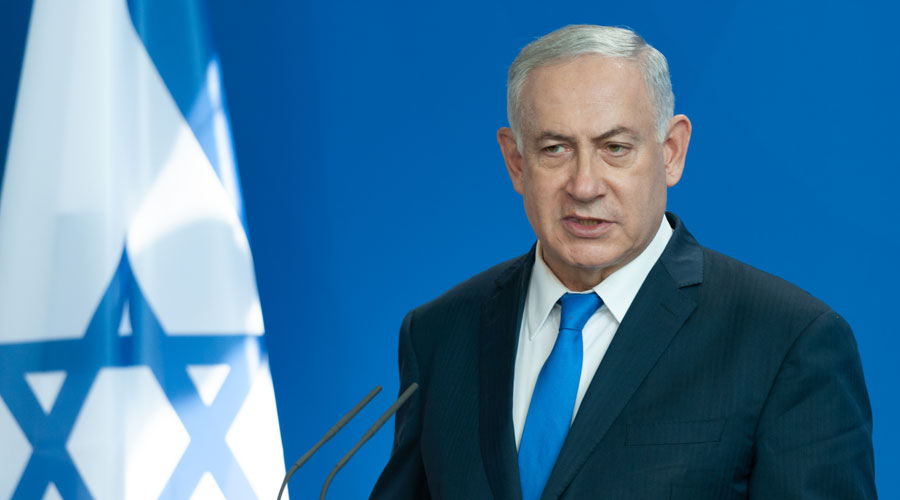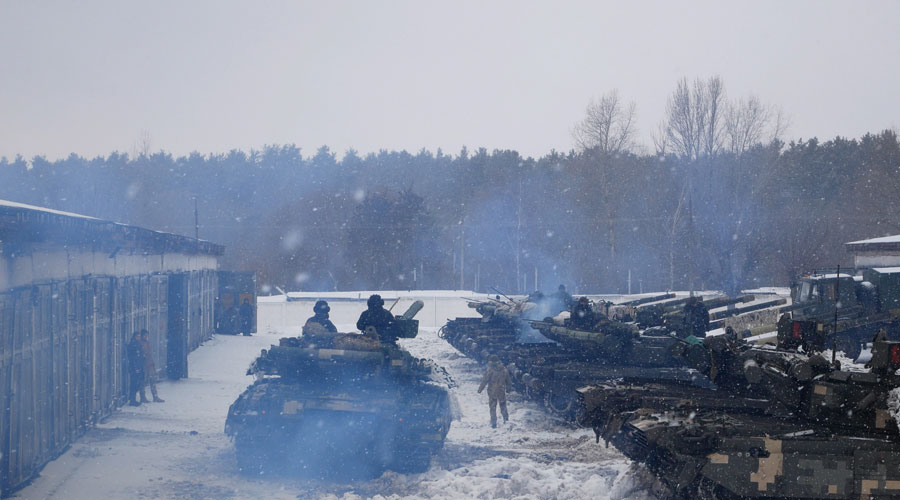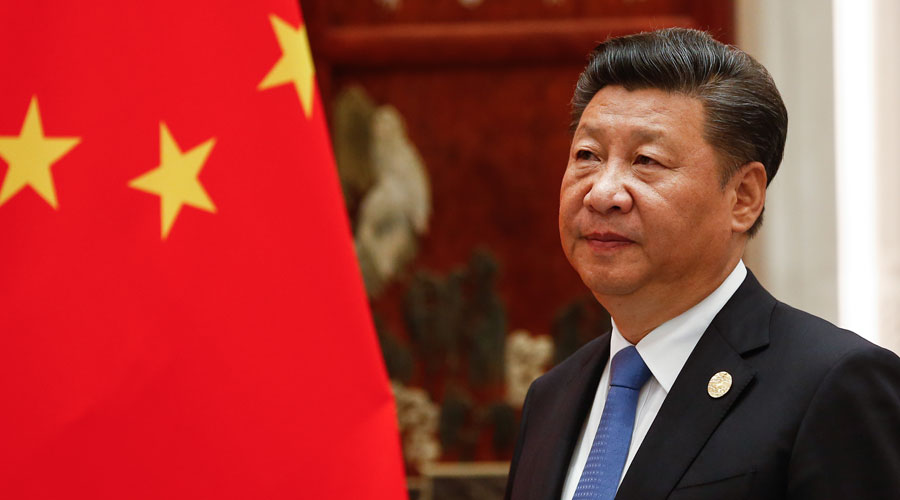We believe that the primary task for our generation is to build a new American strategy attuned to the pressing realities of our time. This framework must be comprehensive of the major regions and dimensions of U.S. power and interests. It must also be willing to challenge established wisdom and inertia in U.S. national security policy and related fields.

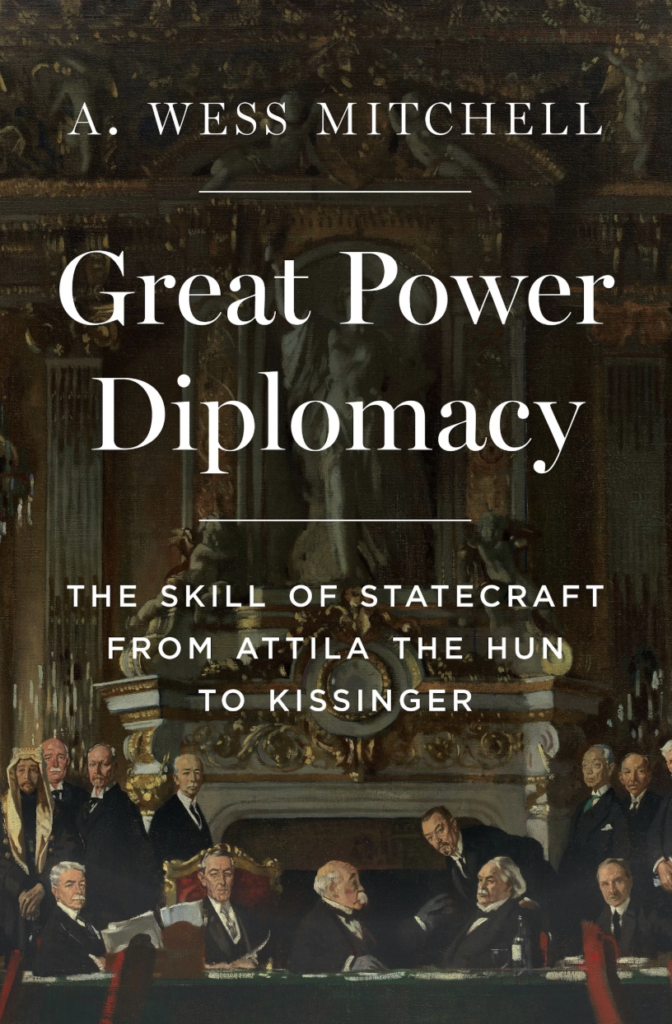
Great Power Diplomacy
A. Wess Mitchell
Wess Mitchell analyzes the history of diplomacy, and provides an urgent reminder of why we need to revive its lost art in a dangerous era of great power competition.
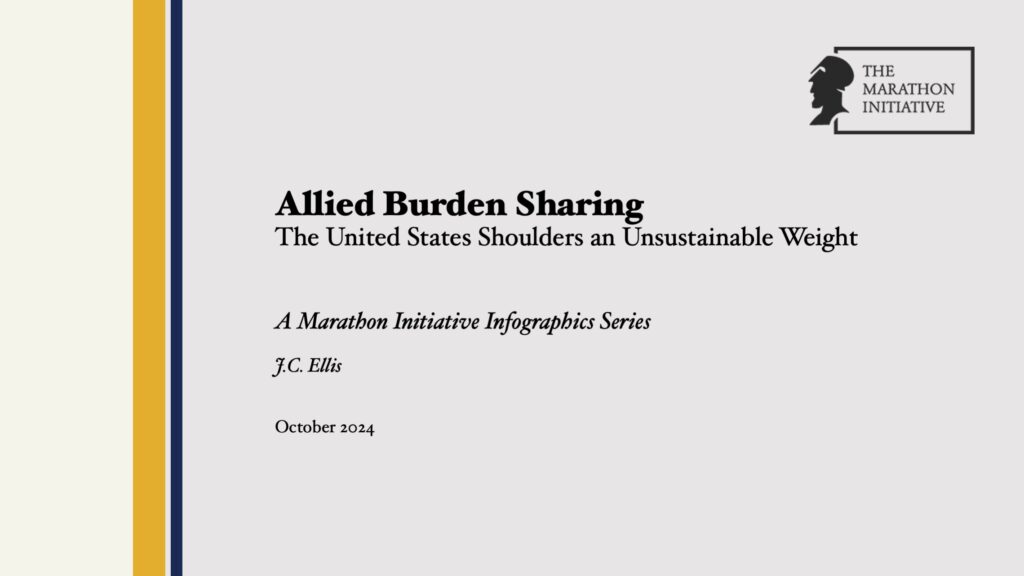
Allied Burden Sharing: The United States Shoulders an Unsustainable Weight [A Marathon Initiative Infographics Series]
J.C. Ellis
America’s allies are heavily reliant on the United States for security. These dependencies belie the potential power of our partners – and America’s growing fiscal constraints.
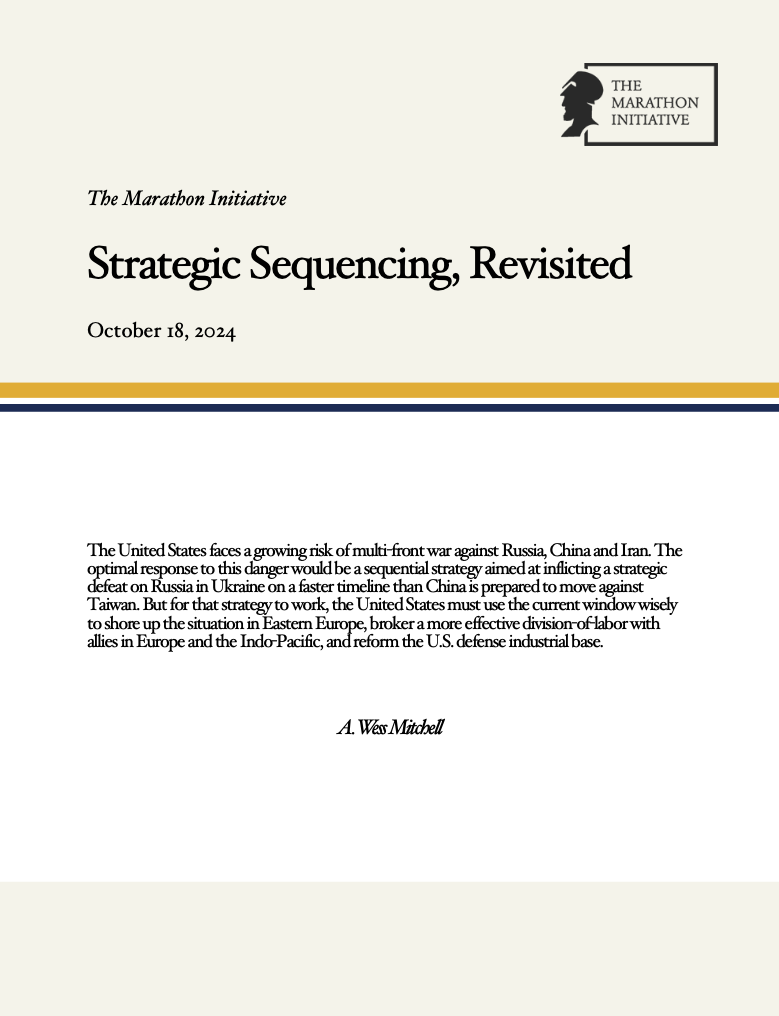
Strategic Sequencing, Revisited
by Wess Mitchell
The United States faces a growing risk of multi-front war against Russia, China and Iran. The optimal response to this danger would be a sequential strategy aimed at inflicting a strategic defeat on Russia in Ukraine on a faster timeline than China is prepared to move against Taiwan. But for that strategy to work, the United States must use the current window wisely to shore up the situation in Eastern Europe, broker a more effective division-of-labor with allies in Europe and the Indo-Pacific, and reform the U.S. defense industrial base.
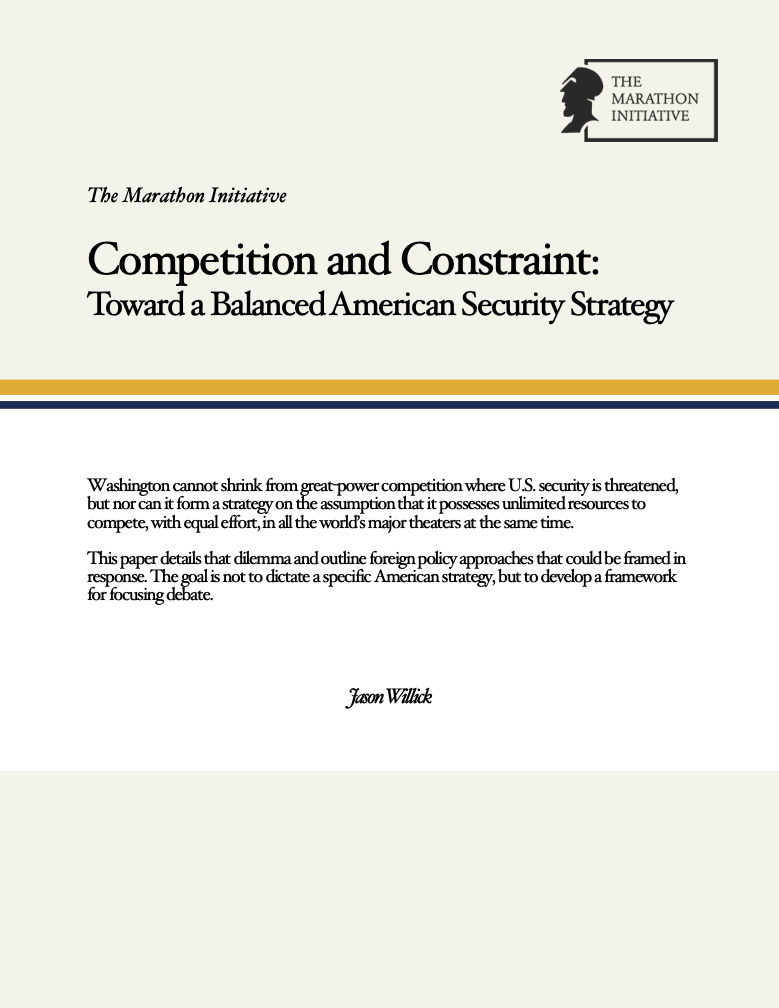
Competition and Constraint: Toward a Balanced American Security Strategy
by Jason Willick
Washington cannot shrink from great-power competition where U.S. security is threatened, but nor can it form a strategy on the assumption that it possesses unlimited resources to compete, with equal effort, in all the world’s major theaters at the same time. This paper details that dilemma and outline foreign policy approaches that could be framed in response. The goal is not to dictate a specific American strategy, but to develop a framework for focusing debate.

China’s Pursuit of Energy Security: Electrification is a Gamechanger [A Marathon Initiative Infographics Series]
by Christopher Vassallo
China is making strides in its effort to secure its energy supply, undercutting the threat of an American blockade, potentially increasing Beijing’s willingness for war.
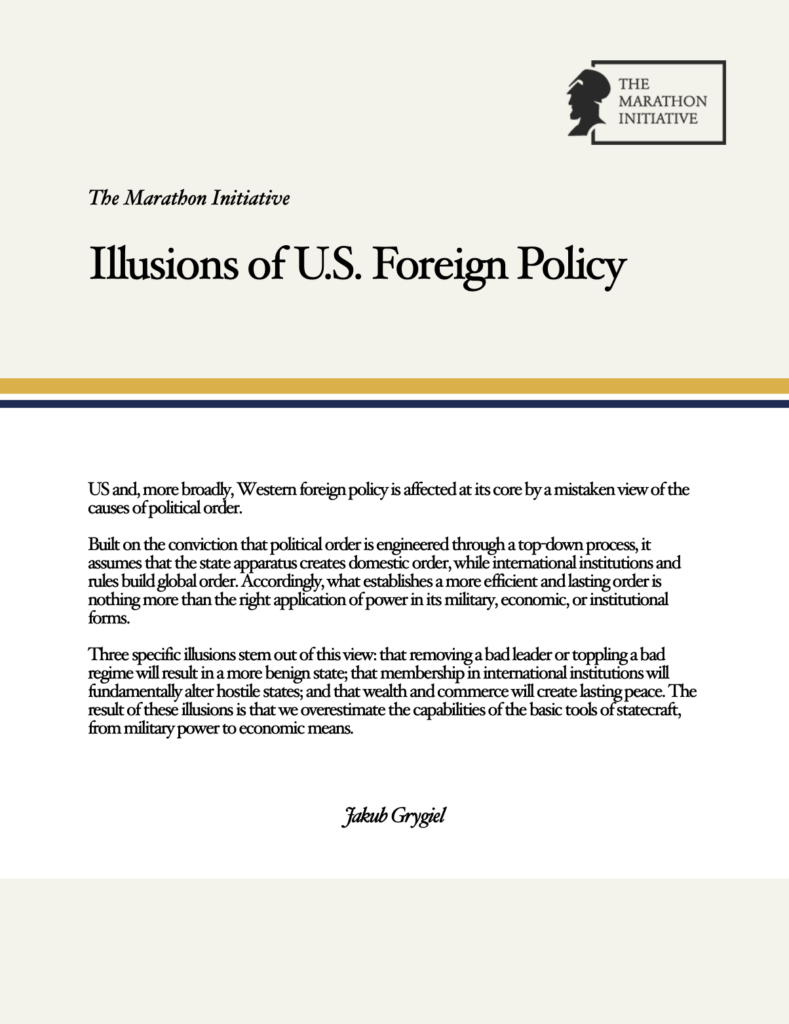
Illusions of U.S. Foreign Policy
by Jakub Grygiel
Built on the conviction that political order is engineered through a top-down process, Western foreign policy assumes that the state apparatus creates domestic order, while international institutions and rules build global order. Accordingly, what establishes a more efficient and lasting order is nothing more than the right application of power in its military, economic, or institutional forms.
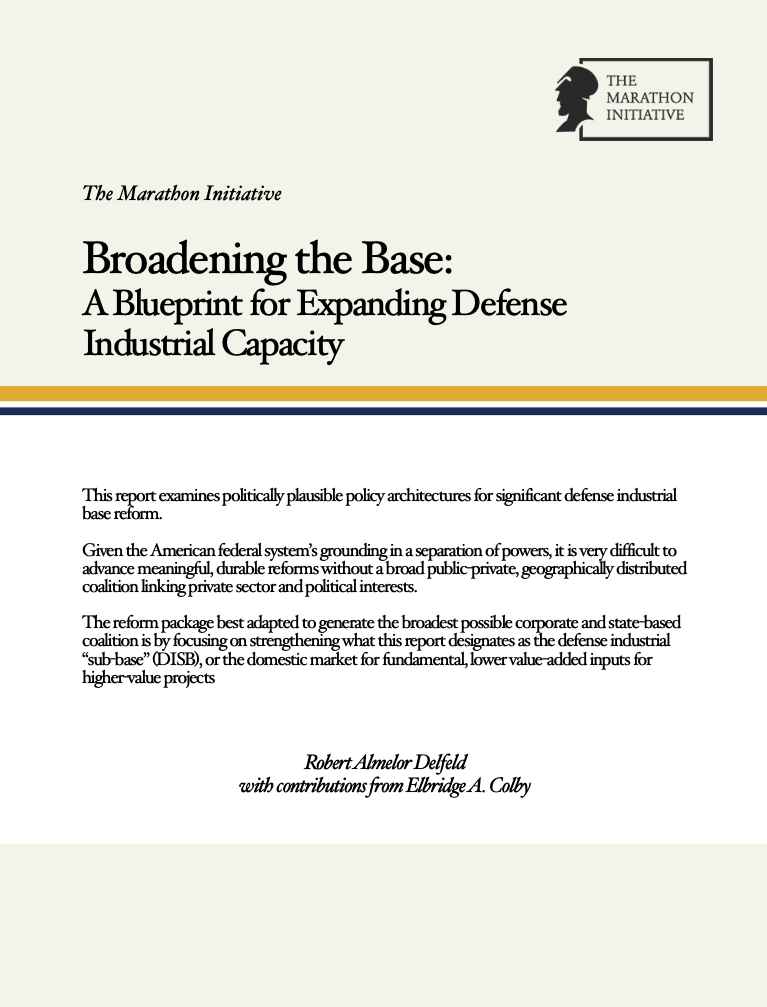
Broadening the Base: A Blueprint for Expanding Defense Industrial Capacity
by Robert Almelor Delfeld, with contributions from Elbridge A. Colby
The reform package best adapted to generate the broadest possible corporate and state-based coalition is by focusing on strengthening what this report designates as the defense industrial “sub-base” (DISB).
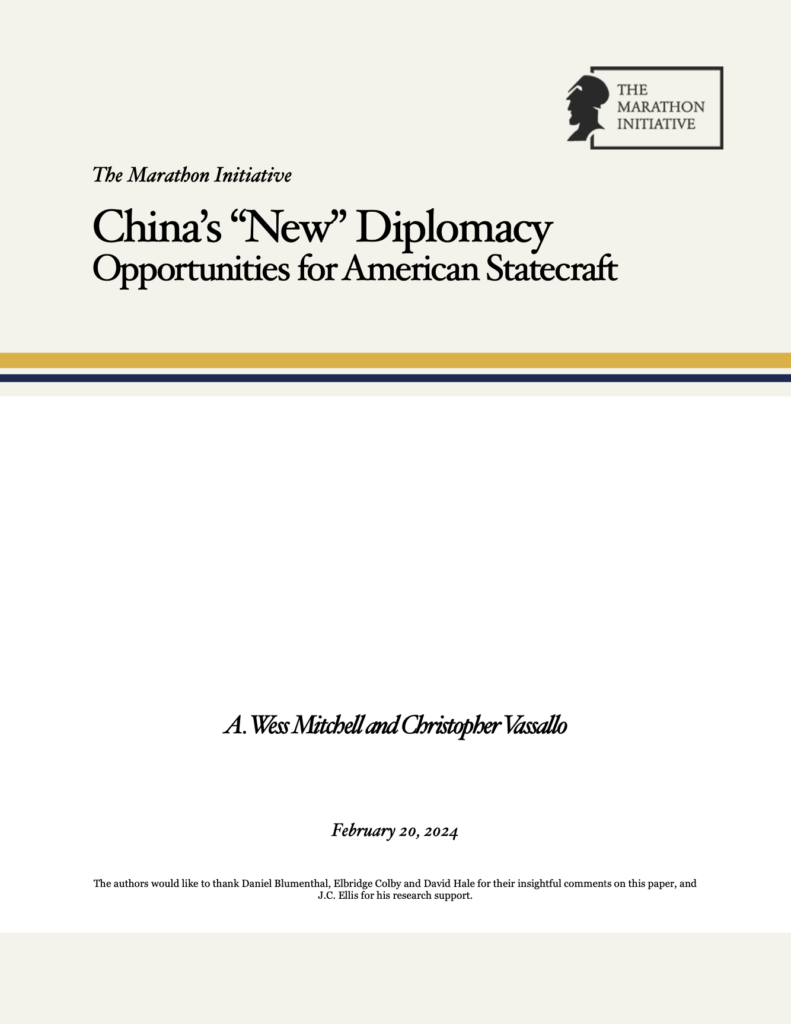
China’s “New” Diplomacy: Opportunities for American Statecraft
by A. Wess Mitchell and Christopher Vassallo
The People’s Republic of China has embarked on an ambitious diplomatic campaign to increase its influence in strategically-vital regions and burnish its credentials as a great power of global reach.
Foreign Policy | Ignore the critics. The logic of consolidation that defines the new National Security Strategy is eminently sensible.......
Who Could Shield Taiwan from China?
Washington Post | The island is making leaps in military spending and acting with greater focus than ever before........
Great Power Diplomacy
Princeton University Press | Wess Mitchell analyzes the history of diplomacy, and provides an urgent reminder of why we need to revive its lost art in a dangerous era of great power competition...........
Sequencing Over Simultaneity: How to Avert a Two-Front War
War on the Rocks | America’s crippling strikes against Iran’s nuclear program in June have created a narrow window to avoid a strategic nightmare: namely, fighting China, Russia, and Iran all at once.........
Wess Mitchell Presents at Korean Institute for Defense Analysis
Korean Institute for Defense Analysis | Wess Mitchell presents a U.S. perspective on Indo-Pacific security affairs........
How to Understand Trump’s Russia Strategy
The National Interest | The recent hardening of Russian president Vladimir Putin’s position on Ukraine has led some critics to claim that the Trump meeting in Anchorage was a waste of time......
The State Department Overhaul Is Long Overdue
Foreign Policy | The State Department is in urgent need of reform. Over the past three decades, it has expanded its remit into countless functions and causes that are well outside its core mission. This is not just an inefficient use of taxpayer resources.........
America is overextended. Here’s a better way forward.
Washington Post | The “simultaneity problem,” as it’s known in military circles, has been the most serious grand strategic challenge facing the United States for some time now.........
The Case for a Pacific Defense Pact: America Needs a New Asian Alliance to Counter China
Foreign Affairs | The time has come for the United States to build a collective defense pact in Asia. For decades, such a pact was neither possible nor necessary. Today, in the face of a growing threat from China, it is both viable and essential..........
The Return of Great-Power Diplomacy: How Strategic Dealmaking Can Fortify American Power
Foreign Affairs | After the end of the Cold War, the United States moved away from using negotiations to promote the national interest. .......
Europe Still Lives in a Security Utopia
Foreign Policy | Europe needs a Walter Lippmann — the famous American journalist who, in 1943, argued that a gap between foreign commitments and capacity creates an “insolvent” foreign policy......
The Greater Gunbelt: The Next Defense Industrial Coalition
American Compass | It has become clear that the current DIB is ill-equipped to produce materiel adequate to achieve plausible mission objectives in any one theater America is currently engaged in, let alone all three ........
Allied Burden Sharing: The United States Shoulders an Unsustainable Weight [A Marathon Initiative Infographics Series]
The Marathon Initiative | America’s allies are heavily reliant on the United States for security. These dependencies belie the potential power of our partners – and America’s growing fiscal constraints........
Strategic Sequencing, Revisited
The Marathon Initiative | The United States faces a growing risk of multi-front war against Russia, China and Iran. The optimal response to this danger would be a sequential strategy aimed at inflicting a strategic defeat on Russia in Ukraine on a faster timeline than China is prepared to move against Taiwan.........
Competition and Constraint: Toward a Balanced American Security Strategy
The Marathon Initiative | Washington cannot shrink from great-power competition where U.S. security is threatened, but nor can it form a strategy on the assumption that it possesses unlimited resources to compete, .......
How Biden Let Europe Slip Away
Wall Street Journal | On trade, defense and energy, Washington has failed to shore up the trans-Atlantic alliance.......
U.S. Strategy Should Be Europe First, Then Asia
Foreign Policy | Without a secure Europe, the United States risks becoming a hemispheric potentate on the margins of the world....
The U.S. and Taiwan Must Change Course
The Wall Street Journal | "Elbridge Colby responds on the defense of Taiwan from a Chinese invasion.".....
The Geopolitical Opportunity of Ukraine’s Kursk Offensive
Foreign Policy | Ukrainian offensives onto Russian soil, such as the one currently underway in the Kursk region, present an opportunity to end the war more quickly as part of a wider strategy of sequencing the United States’ geopolitical challenges.......
“Shadow Reserves”: China’s Key to Parry U.S. Financial Sanctions
War on the Rocks | Elbridge Colby discusses AUKUS and U.S. submarine power projection in the Pacific with The Sydney Morning Herald......
The Right Way to Quickly End the War in Ukraine
Foreign Affairs | To halt open-ended U.S. expenditures and preserve Ukraine’s independence and security, the United States and its allies need to give Kyiv one last serious chance at victory......
Only One Priority Makes Sense for American Foreign Policy
American Compass | "A strategy of prioritization flows directly from what I would describe as conservative realism. The core of conservatism is making the best of the world as it is: that’s why prudence is a core conservative virtue".........
Illusions of US Foreign Policy
The Marathon Initiative | Built on the conviction that political order is engineered through a top-down process, Western foreign policy assumes that the state apparatus creates domestic order, while international institutions and rules build global order…......
America must face reality and prioritise China over Europe
Financial Times | "Despite stirring rhetoric from leaders in Congress and the press, a foreign policy of US primacy is simply not possible. We do not have the military for it, and even if the budget were available, we could not field one in sufficient time........
Taiwan must get serious on defense
The Taipei Times | With each passing day, the threat of a People’s Republic of China (PRC) assault on Taiwan grows......
The Next Washington Consensus: The Security State and Its Rivals
American Affairs | Project states” have been directed at various sociopolitical missions in the past (the new War on Carbon is best seen as a successor to the War on Drugs and the War on Poverty),......
The U.S. Munitions Deficit Is a Political Problem
Foreign Policy | The best way to understand this lack of progress is as a form of collective action problem. Given the U.S. federal system’s grounding in a separation of powers..........
Broadening the Base: A Blueprint for Expanding Defense Industrial Capacity
The Marathon Initiative | The reform package best adapted to generate the broadest possible corporate and state-based coalition is by focusing on strengthening what this report designates as the defense industrial “sub-base” (DISB).…......
U.S. Hawks Must Finally Get Real About China
TIME | Hawks have been saying for decades that we are living in an incredibly dangerous world. That was an exaggeration twenty years ago but now is actually true...........
China’s “New” Diplomacy: Opportunities for American Statecraft
The Marathon Initiative | The People’s Republic of China has embarked on an ambitious diplomatic campaign to increase its influence in strategically-vital regions and burnish its credentials as a great power of global reach.…......
5 Rules for Superpowers Facing Multiple Conflicts
Foreign Policy | Ukraine, the Middle East, and Taiwan are part of an unstable frontier—and require a more principled U.S. strategy......
No Sanctuary: The PLA’s Kinetic Threat to the Homeland
The Marathon Initiative | Without adequate U.S. preparations, a large-scale—or even small but effectively targeted— PLA strike against the United States could be devastating, not only in terms of direct costs but on the ability of the United States to wage a war.…......
David Hale: Sino-American Competition, Global Strategy, and the Place of the Middle East
The National Interest | The pivot to East Asia is a rational maneuver much discussed over the past decades but of only recent and somewhat sticky execution..........
America Is a Heartbeat Away From a War It Could Lose
Foreign Policy | Global war is neither a theoretical contingency nor the fever dream of hawks and militarists.....
“Strategy of Denial” Now Available in Korean // “거부 전략”은 이제 한국어로 이용 가능
Pybook Korea | Elbridge Colby’s landmark book “The Strategy of Denial” is now available in Korean. // 엘브리지 콜비의 획기적인 책 "거부 전략"은 이제 한국어로 제공됩니다.........
Sino-American Competition, Global Strategy, and the Place of the Middle East
The Marathon Initiative | Without adequate U.S. preparations, a large-scale—or even small but effectively targeted— PLA strike against the United States could be devastating, not only in terms of direct costs but on the ability of the United States to wage a war.…......
27th Annual Economist Government Roundtable – Keynote Remarks
The Marathon Initiative | There are now major conflicts in two of the world’s three most important regions. We are in the early phases of what could become the world crisis of our time.…......
Why Putin’s visit to China is a joint show of defiance towards US-led West
South China Morning Post | “[There is] a massive mismatch between strategy and resources,” Elbridge Colby, a China hawk and former deputy assistant secretary of defence under Biden’s predecessor Donald Trump, commented..........
The gathering storm
Washington Examiner | “The threat from China has not dissipated in the slightest while our defense spending and industry remain basically status quo as threats multiply,” former Pentagon official Elbridge Colby wrote........
World Events Are Not Going America’s Way
The Spectator | There is a foreign policy strategy to manage this much more dangerous era, one proceeding from a sober-minded focus on our core national interests and prioritizing dealing with our prime great power rival, China......
Delfeld: The Military Strategy of ‘Deterrence by Denial,’ Rightly Understood
National Review | Strictly speaking, a strategy of deterrence by denial is about preventing a war in the Pacific, particularly over Taiwan, by first achieving a favorable balance of allied military power that will enable conditions for détente.......
Two Fronts, One Goal: Euro-Atlantic Security in the Indo-Pacific Age
The Marathon Initiative | This paper outlines how Europe can contribute to alleviating the “two-front” predicament in U.S. global strategy. It shows how Europeans can help free up the United States’ strategic bandwidth in Europe so as to enable a proper U.S. prioritization of China without weakening Europe’s deterrence architecture.…......
How We Can Help Ukraine While Genuinely Prioritizing Asia
TIME | “We can hope that there will soon be a just and durable end to this conflict, but predicating our strategy on such a hope would be imprudent. Rather, we must assume that Russia will remain a threat to Ukraine and NATO for the foreseeable future.......
NATO’s Next Decade: Nine thinkers assess the alliance’s future ahead of a historic summit.
Foreign Policy | NATO’s 2022 Strategic Concept took an important first step by recognizing China as a security challenge, but now the alliance needs to translate that into concrete actions.......
Western Europe Is Still Falling Short in NATO’s East
Foreign Affairs | Although the war has done a lot to get western Europe serious about defense, NATO remains bound by many of the same old self-created constraints......
The Threat of A US-China War Requires A US-Israel Reset
The Times of Israel | Prime Minister Benjamin Netanyahu’s plans to visit China later this year have drawn criticism from a number of quarters, but whether close allies are in favor of Israel visiting Beijing is the wrong lens for viewing US alliances in this renewed era of superpower rivalry......
Getting Strategic Deprioritization Right
The Marathon Initiative | Project prepared for the Office of Net Assessment, United States Department of Defense. Published with approval from the Office of Net Assessment.…......
Why US Needs A More Adaptive Diplomacy With India
The Economic Times | Elbridge Colby calls for a less rigid approach to diplomacy left over from the unipolar era. “In today's world…the US faces far too many significant challenges to adhere to such an inflexible and, indeed, often domineering mentality.......
A Drawn-Out Ukraine War Should Not Change U.S. Strategy
Foreign Policy | Sequencing remains the best strategy for the United States to handle the two-front challenge from China and Russia. Helping Ukraine to defeat Russia by ejecting it from its territory is the best way to pursue such a strategy.....
Why Biden’s China Reset Is a Bad Idea
Foreign Policy | "Now is not the time for the United States to pursue détente with China, as the Biden administration has been trying to do for several weeks now."....



